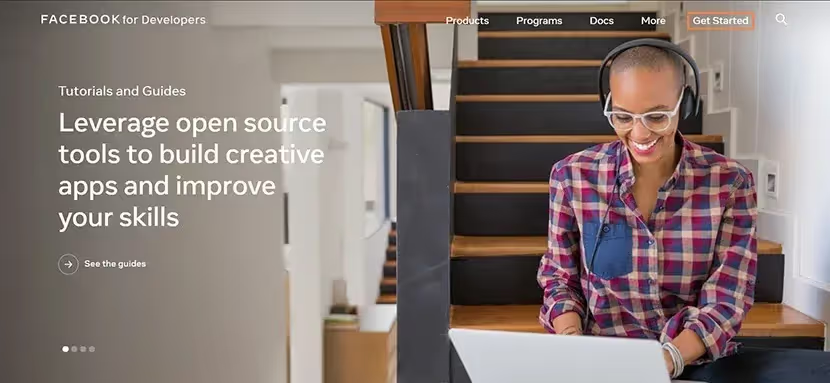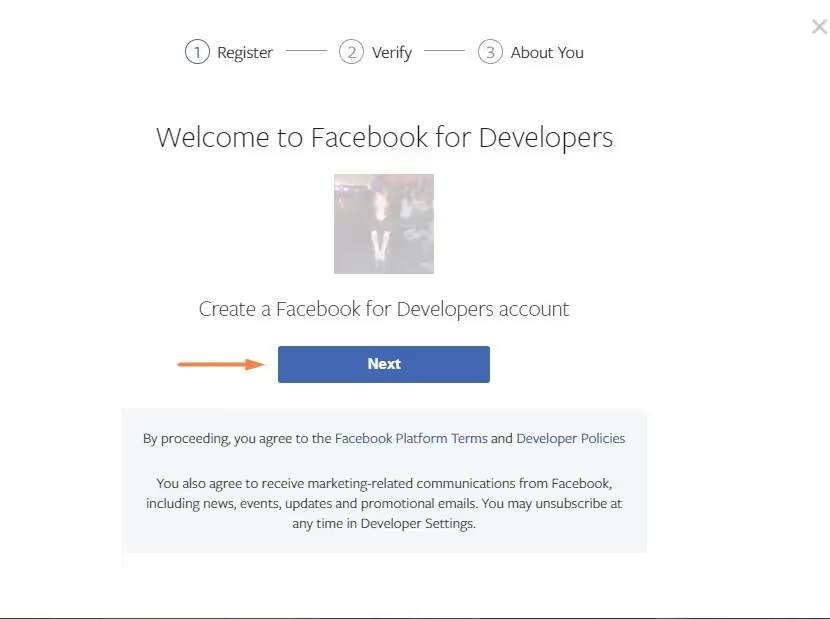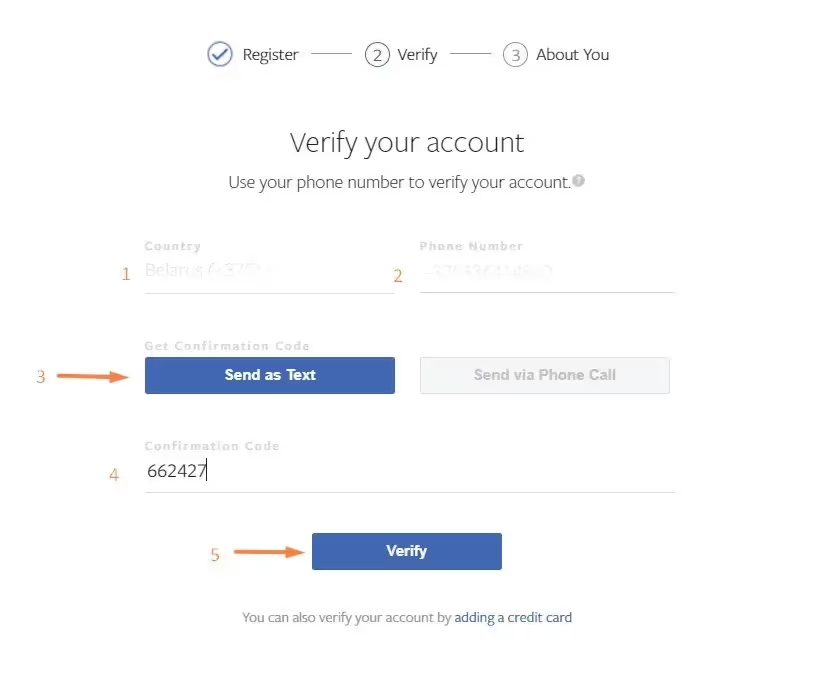Gone are the good old days, when we could solely rely on demographics for Facebook targeting. Let’s talk about targeting users with similar interests in 2024.
Close your eyes for a minute and imagine you are on a beach. You are running in the sand, dipping in cold water when suddenly you realize, you have lost your only key (without a keychain).
Now, even though you know the correct demographic groups, even a potential area to search through, the odds of finding that key are as good as unearthing a buried treasure chest.
Well, we can’t do anything about the key.
But, we can help developers like you, pinpoint users on Facebook, actively searching for products or services related to yours.
The Facebook Search API is like your metaphorical metal detector, which can guide you straight to the bullseye of your target audience.
In this blog, you will learn the functionalities of Facebook Search APIs, specifically focusing on Targeting Search and Pages Search (Note: Places Search functionality was deprecated in 2021).
We'll explore the benefits of using the Facebook Search API and guide you through the step-by-step integration process.
What is the Facebook Search API?
The Facebook Search API acts as a bridge between your application and Facebook's search features. Imagine it as a key that unlocks a treasure box full of user data based on specific search terms, interests, and locations. This data can help you target users with unmatched precision, ensuring your ad campaigns and content resonate with the right audience.
What are the Key Features of Facebook Search API?
Statistics suggest that well-targeted ads can generate up to 5X return on ad spend (ROAS) compared to untargeted ads.
Using the API, you can move beyond age and location barriers and target users who have explicitly searched for specific keywords or phrases relevant to your industry or niche.
This ensures your campaigns reach the right audience maximizing your campaign engagement and conversions.
As a developer, you can analyze search terms to understand user intent. By identifying the exact keywords and phrases users are searching for, you gain a window into their desires, needs, and buying habits.
Marketers can use this knowledge to craft content, videos, and messaging that feels authentic and naturally aligns with the target audience’s interests.
The Places Search API also enables you to find Facebook Pages and explore publicly available public posts, containing relevant keywords or hashtags.
This offers valuable insights into user opinions, industry trends, and emerging pain points, allowing you to stay ahead of the curve and tailor your offerings accordingly.
3 Benefits of Facebook Search API for Targeting and Search
Facebook Search API tools can be highly beneficial for developers. Let's understand how with an example.
1. Developers can integrate the Facebook Search API into their applications to allow users to search for specific products or features within the app.
This streamlines the user experience and personalizes their journey.
Nike uses the same approach. If you a search term for "running shoes for women" in the Nike app, you will be displayed a page with the most relevant keyword-optimized options.
2. The developers can also analyze user search behavior within their business app using the Facebook Search API.
This data can inform future app development, identifying features and functionalities most desired by users.
3. By leveraging user search developers can easily personalize content recommendations and user experiences within their business app. It keeps users engaged and coming back for more!
Just like how the Nike app recommends training plans or running shoes based on a user's search for "half marathon training".
A Step-by-Step Guide to Access and Integrate Facebook Search API
Want to leverage the vast amount of public data available on Facebook within your own application? This step-by-step guide will equip you with the knowledge to access and integrate the Facebook Search API. By following these instructions, you'll unlock the ability to search for public profiles, pages, groups, and even posts based on specific keywords and filters. This powerful tool can be instrumental for tasks like market research, competitor analysis, or even building social listening features into your app.
Step-1
The first step is to have your own Facebook developer’s account. Go to Facebook for developers and click My Apps > Create App. You can also use an existing app.

This account grants you access to Facebook's developer tools and resources, including the Places Search API.
Step-2
The next step is to approve your account. Start the process by pressing “Next” in the popup that shows up.

Step-3
Now verify your account either using your phone number or a credit card. To proceed via the phone number, pick your country in the drop-down menu, enter your phone number with your country’s code, and click “Send as Text”.
Enter the received code into the field and click “Verify”

Step-4
The next window will ask you to create your first app.
Remember, all the Facebook APIs and App statistics are tracked through the Developers Dashboard. You can’t access it without creating an app.
Step-5
The screen will display all the Facebook APIs that you can add to your code, right through the Dashboard.
Next, go to the tools section and select Graph API Explorer to generate an access token for the Places Search API.
Choose the app and kind of token you need in the drop-down menus on the left part of the screen.
Then click “Generate Access Token”. Approve the access of the app to your page.
Step-6
Don’t forget to secure your app ID and app secret. During the app registration process, you'll be provided with a unique App ID and App Secret.
These credentials are essential for authenticating your application and accessing the Facebook Search API. Store them securely, as they grant access to your app's data.
Step-7
Once you have your credentials, choose your language, and optionally install the SDK, you're ready to start making API calls to retrieve data.
The specific code for making API calls will vary depending on your chosen language and the data you want to access.
Note: The API returns data in JSON format. You'll need to use your programming language's tools to parse and interpret this data. Once you have the data in a usable format, you can start analyzing it to extract valuable insights about user behavior and search patterns.
You can also read: Facebook Analytics API: Developer guide on how to use the Analytics API
3 Best Practices for Maximizing Your Facebook Search API Experience
1. Set Clear Goals
Before diving headfirst into data exploration, establish your specific goals.
What do you want to achieve by using the Facebook Search API?
Do you aim to improve ad targeting accuracy, gain insights into user intent, or personalize user experiences within your app?
Having a structure and clear goals allows you to focus on the most relevant data points and metrics.
2. Start Simple and Scale Up
Don't overwhelm yourself by trying to analyze everything at once.
Begin by focusing on a few key metrics that align with your goals.
As you gain comfort and expertise, you can gradually expand your data analysis efforts.
3. Schedule Regular Data Collection
Set up automated data refreshes to ensure you have access to the latest user search behavior data.
This allows you to track trends, identify changes in user preferences, and continuously optimize your audience targeting strategies.
How Phyllo API Helps With Fetching Facebook Search API Data
Even though Facebook Search API offers multiple ways to access user data and page insights, it does come with limitations for developers.
All developers are familiar with Facebook rate limits on API calls which prevents overloading their servers.
This means you can make a very limited number of requests within a specific timeframe, which is not always convenient for developers.
Adding to the issues, extracting and managing a bulk of data often requires complex coding and time-consuming manual processes.
This is why developers demand more freedom, easy accessibility, and user-friendly interface. They are basically demanding Phyllo’s Facebook Search API.
How Phyllo’s Facebook Search API Tool Makes Your Job Easier?
Phyllo cuts through these complexities, making Facebook Search data retrieval and utilization a piece of cake for developers. Here's how:
1. Phyllo's intuitive interface allows you to select the specific metrics you need from Facebook Search API with just a few clicks.
It simplifies data retrieval, freeing you to focus on analysis and strategic planning.
2. Phyllo lets you schedule automatic data refreshes to ensure you always have access to the latest user search trends and page insights.
Additionally, Phyllo centralizes data from various sources, including Facebook Search API, for a comprehensive view of user behavior.
3. Cleaning and manipulating data can be painful.
Phyllo streamlines the process, allowing you to effortlessly clean, transform, and prepare your Facebook Search API data for analysis.
This ensures the data sets are accurate and insightful, saving you valuable time and resources.
Example: Enhancing E-commerce Targeting with Phyllo
For a moment, imagine you're developing an e-commerce platform for sporting goods.
Traditionally, you might rely on generic user demographics for ad targeting. Phyllo works differently!
Using Phyllo's access to Facebook Search API data, you can identify users actively searching for specific sports equipment or brands.
This allows you to design ad campaigns that reach users with high purchase intent, significantly increasing conversion rates.
Phyllo also allows you to analyze user search trends within your e-commerce platform.
You can identify popular sports equipment categories or specific product searches.
Then use these insights to personalize product recommendations. and customize your content to user interests, leading to a more engaging shopping experience for customers.
Sign up for a FREE Phyllo trial today and experience the difference!
Conclusion
With time, every business will familiarize itself with user targeting through Facebook Search API. As search behavior continues to evolve and user privacy remains a top priority, the API is expected to become even more sophisticated.
In this blog, we explored the functionalities, benefits, and use case of Facebook Search API, focusing on its potential for user targeting with unmatched precision.
Despite the advantages that Facebook Search API offers, it has its share of limitations like manual interventions, complex codes, etc.
With Phyllo, you can ditch the complex coding and data management headaches.
Phyllo handles the heavy lifting, ensuring you have the data you need to optimize your Facebook Search strategies and achieve your business goals.
Remember, successful development hinges on leveraging data effectively. The Facebook Search API provides the tools, and Phyllo streamlines the process,
Learn more about how Phyllo can help you make the most of Facebook Search functionalities with one click
.avif)

.avif)







